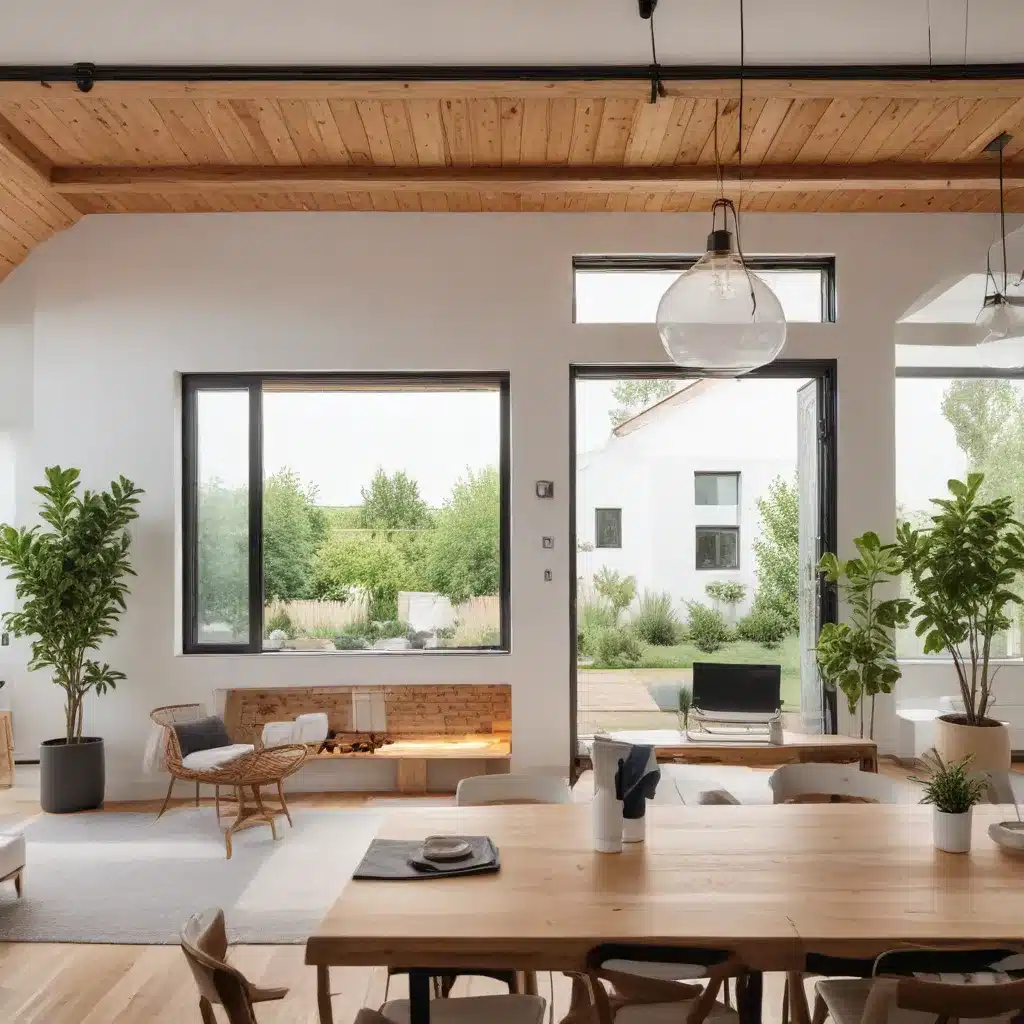
Eco-Friendly Renovations: Embracing Smart Home Technologies
As the world grapples with the pressing challenges of climate change, homeowners are increasingly seeking innovative ways to reduce their environmental impact through smart home renovations. The Reluctant Renovator is here to guide you through the exciting possibilities of embracing eco-friendly technologies that not only lower your carbon footprint but also enhance the comfort, convenience, and value of your living space.
Smart Home Technologies
Whether you’re remodeling your kitchen, upgrading your home office, or planning a whole-house renovation, smart home technologies offer a wealth of opportunities to create a more sustainable and efficient living environment. From renewable energy systems to intelligent lighting solutions and automated climate control, these cutting-edge advancements are revolutionizing the way we interact with our homes.
Renewable Energy Systems: Integrating solar panels, geothermal heat pumps, or wind turbines into your home’s design can dramatically reduce your reliance on traditional electricity grids and fossil fuels. These renewable energy sources not only lower your carbon footprint but also provide long-term cost savings on utility bills. When paired with smart energy management systems, homeowners can monitor and optimize their energy consumption, ensuring maximum efficiency.
Intelligent Lighting Solutions: Smart lighting systems, including LED bulbs and motion-activated fixtures, can significantly cut energy usage while enhancing the ambiance of your living spaces. Many of these solutions can be controlled remotely via smartphone apps or voice commands, making it easier to adjust lighting levels and schedules to suit your needs. By automating your lighting, you can ensure that lights are turned off when not in use, further reducing your environmental impact.
Automated Climate Control: Integrating smart thermostats and zoned HVAC systems allows you to precisely manage the temperature and humidity levels in your home, optimizing comfort while minimizing energy consumption. These advanced systems can learn your habits and preferences, automatically adjusting settings to maintain a comfortable environment throughout the day and night. By automating climate control, you can avoid wasteful heating or cooling of unoccupied rooms, leading to substantial energy savings.
Sustainable Home Design
Beyond the integration of smart technologies, eco-friendly renovations also involve thoughtful design choices that prioritize environmental sustainability. From the selection of energy-efficient materials to the implementation of passive heating and cooling strategies, every aspect of your home’s construction can contribute to a more sustainable living experience.
Energy-Efficient Materials: When selecting building materials for your renovation, look for options that are low in volatile organic compounds (VOCs), energy-efficient, and sourced from renewable or recycled resources. This includes insulation with high R-values, reclaimed wood for flooring or cabinetry, and low-emissivity (low-E) windows that help regulate temperature.
Passive Heating and Cooling: Incorporating passive design principles can significantly reduce your reliance on mechanical heating and cooling systems. This may involve strategically placed windows to maximize natural light and cross-ventilation, high-efficiency insulation to maintain temperature stability, and green roofs or living walls that provide additional thermal regulation.
Water Conservation Strategies: Integrating water-saving technologies, such as low-flow faucets and showerheads, greywater recycling systems, and smart irrigation controllers, can dramatically lower your household’s water consumption. These measures not only contribute to environmental sustainability but also result in long-term cost savings on utility bills.
Integrated Home Automation
The marriage of smart home technologies and sustainable design principles creates a harmonious living environment that caters to both your comfort and your environmental conscience. By embracing centralized control systems, sensor-driven optimization, and predictive maintenance, you can streamline the management of your home while minimizing its ecological footprint.
Centralized Control Systems: A smart home hub or integrated platform allows you to manage a wide range of connected devices, from lighting and climate control to security systems and entertainment. This centralized approach simplifies the user experience and ensures seamless integration between various smart home components.
Sensor-Driven Optimization: Strategically placed environmental sensors can monitor factors such as air quality, water usage, and energy consumption, providing real-time data to optimize your home’s performance. By leveraging this information, your smart home system can automatically adjust settings to maintain maximum efficiency and comfort.
Predictive Maintenance: Advanced smart home technologies can even anticipate and address potential issues before they arise. For example, smart appliances can send alerts when maintenance is needed, and predictive algorithms can identify potential equipment failures, allowing for proactive maintenance and reducing the risk of unexpected breakdowns.
Environmental Impact Reduction
By embracing smart home technologies and sustainable design principles, you can significantly reduce your home’s environmental impact, contributing to a greener future. From minimizing your carbon footprint to implementing comprehensive waste management initiatives, eco-friendly renovations offer a multifaceted approach to responsible living.
Minimizing Carbon Footprint: The integration of renewable energy sources, energy-efficient appliances, and smart home automation systems collectively work to reduce your home’s reliance on fossil fuels and lower greenhouse gas emissions. This directly contributes to a smaller carbon footprint and helps mitigate the effects of climate change.
Waste Management Initiatives: Eco-friendly renovations often incorporate waste reduction strategies, such as recycling systems for household waste, composting facilities for organic matter, and the use of recyclable or biodegradable building materials. These measures not only minimize landfill waste but also promote a more circular economy.
Eco-Friendly Appliances: When selecting new appliances for your home, look for Energy Star-certified models that meet strict energy-efficiency standards. Additionally, smart appliances with connectivity and automation features can further optimize energy consumption and reduce your environmental impact.
As you embark on your eco-friendly home renovation journey, the Reluctant Renovator encourages you to explore the wealth of smart home technologies and sustainable design solutions available. By embracing this holistic approach, you can create a living environment that is not only visually appealing and comfortable but also a shining example of environmental responsibility. Remember, small steps can lead to big changes, so start planning your smart, eco-friendly renovation today.



